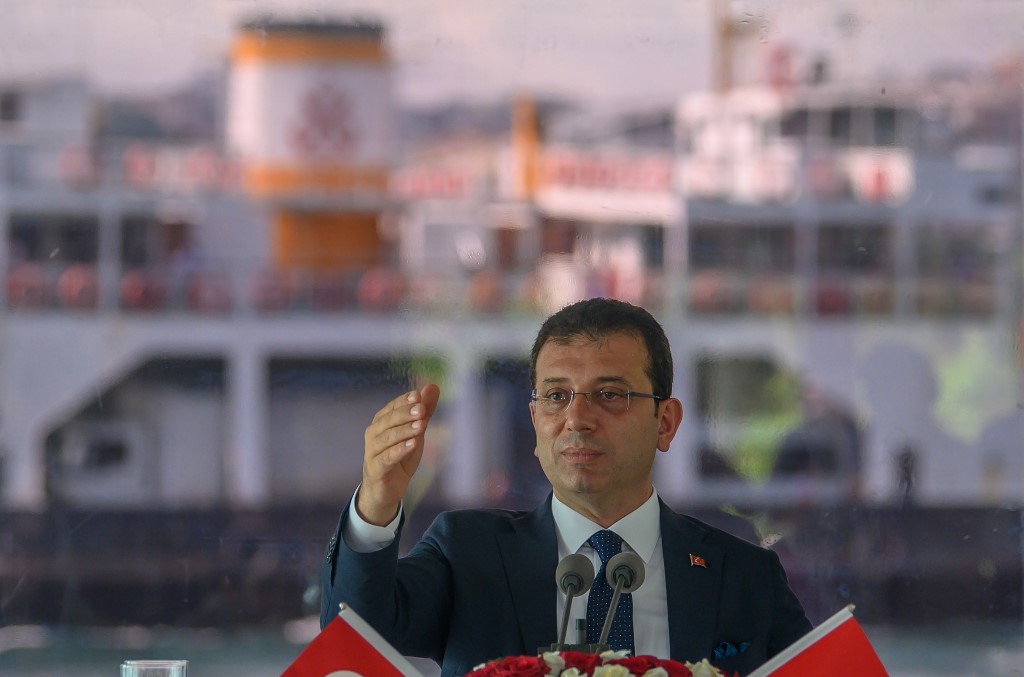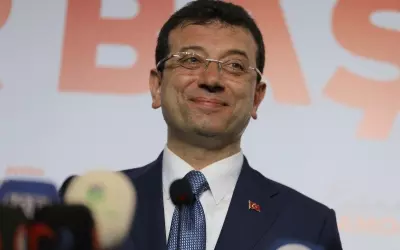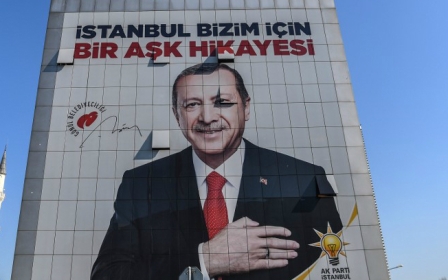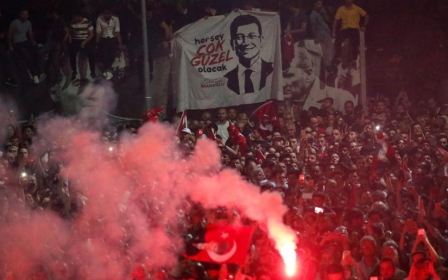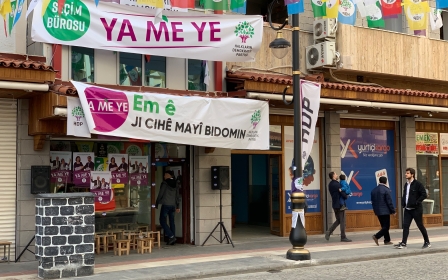Why couldn't Erdogan's populist politics win Istanbul?
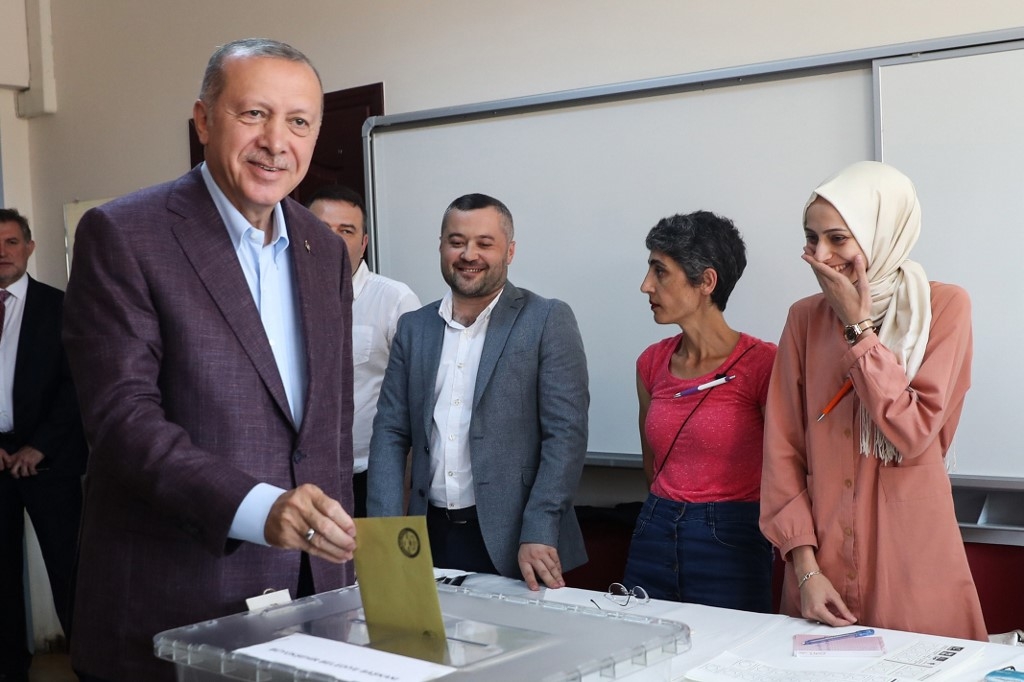
While the currency and debt crisis of 2018 was the main reason why Turkish voters moved away from the ruling AKP in the country’s local elections, the party’s grave political communication errors also played a key role in the repeat victory of opposition figure Ekrem Imamoglu.
The AKP deployed emotional rhetoric throughout the campaign, with messages such as “Istanbul is a love story for us” on huge billboards. At the same time, the election was framed as a matter of national survival, with Imamoglu and his supporters characterised as enemies or traitors.
Turkish voters did not buy into the contradictory messaging. Despite the AKP’s positive slogans, President Recep Tayyip Erdogan used a polarising tone in rallies across Istanbul, talked about terrorism, and used the recent Christchurch attack as fuel to go after the main opposition Republican People’s Party (CHP).
Adding fuel to the fire
While the difference in votes between the ruling party’s candidate, Binali Yildirim, and Imamoglu was fewer than 14,000 in the first round, the repeat election saw that number rise to more than 800,000. After the first vote was controversially annulled, Yildirim suggested that the CHP “stole” the AKP’s votes.
New MEE newsletter: Jerusalem Dispatch
Sign up to get the latest insights and analysis on Israel-Palestine, alongside Turkey Unpacked and other MEE newsletters
This added fuel to the fire, even for AKP supporters. The resulting rerun election saw Yildirim lose even in conservative districts, such as Fatih. The AKP failed to provide a satisfactory answer as to why a repeat vote was needed.
Imamoglu's campaign was masterfully managed, keeping up with the pulse of the Turkish populace
In 1997, Erdogan’s popularity was boosted after he was jailed for reciting at a political rally a poem by Ziya Gokalp, a controversial Ottoman-era poet and activist. This time around, Erdogan compared the opposition candidate to Egyptian President Abdel Fattah el-Sisi, just as the Muslim world mourned the death of former Egyptian president Mohamed Morsi.
Erdogan’s populist tone has been his key strategy for the past decade. During election periods, he tends to use geopolitical or internal conflicts to distinguish his party from his opponents, underlining that his victory is a matter of “survival” - not only for his country, but for the Muslim world. This time, it failed.
The Kurdish factor
Also factoring in to the AKP’s loss was the Kurds. In a bizarre 11th-hour development, Abdullah Ocalan, the leader of the Kurdistan Workers’ Party (PKK), urged his supporters not to go the polls - but the plea backfired after Kurdish voters confirmed they would turn out for the opposition candidate.
Besides its incumbent advantage and past economic wins, the AKP owes its success in previous elections to its creative campaigns. The fact that Erol Olcok, Erdogan’s PR guru and spin doctor who was behind the AKP’s inspirational campaigns, was killed in the 2016 coup attempt explains the deterioration of the discourse and perception management.
On the other hand, Imamoglu’s campaign was masterfully managed, keeping up with the pulse of the Turkish populace. For example, after a young man ran alongside Imamoglu’s campaign bus and shouted: “Don’t worry brother Ekrem, everything will be fine”, this became the opposition candidate’s official rerun campaign slogan.
Erdogan later tried to play off of this; when a voter indicated her support for him by referencing his opponent’s slogan, the president responded: “[Everything] will be even better.” While this might have been clever repartee by a charismatic leader, it did not get the same traction as Imamoglu’s slogan, as it was merely a spin-off.
A future Erdogan?
Surprisingly, the CHP ignored Erdogan’s polarising tone, instead focusing on the deep divisions within society. Rather than pledging new projects for the city, Imamoglu pointed to the economic failures of the AKP.
While Erdogan’s populist politics has worked in nearly every election period, this time around, it cost him the vote. Turks were fed up with this type of polarised discourse, and the people of Istanbul were not convinced that the repeat election was legitimate. It was especially hard to win over young people, who have grown up in a digital era and may not be swayed by promises of new metro lines or hospitals.
The fact that Imamoglu, a figure barely known in Turkey three months ago, earned 54 percent of the votes in Istanbul raises the question: could he be an Erdogan in the making, in terms of popularity?
This will depend on how Imamoglu manages Istanbul, a city of more than 15 million people, in the next five years, as he juggles the competing expectations of his diverse electorate: conservatives, liberals, ultra-nationalists and Kurds. Everything can be “fine” only if he can find solutions to soaring poverty and unemployment, with the economy cited as a key reason for the AKP’s loss.
The views expressed in this article belong to the author and do not necessarily reflect the editorial policy of Middle East Eye.
This article is available in French on Middle East Eye French edition.
Middle East Eye delivers independent and unrivalled coverage and analysis of the Middle East, North Africa and beyond. To learn more about republishing this content and the associated fees, please fill out this form. More about MEE can be found here.



